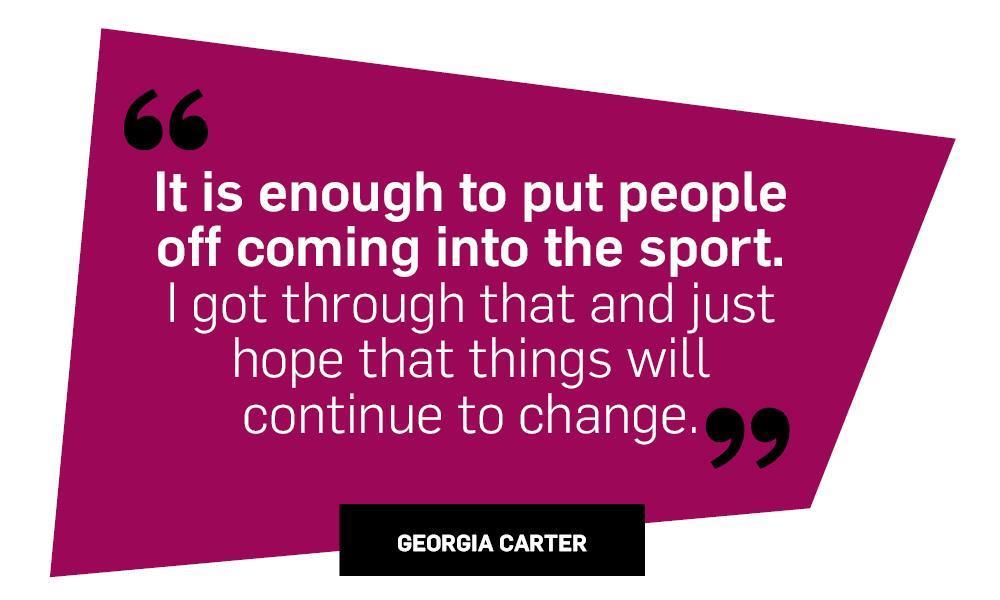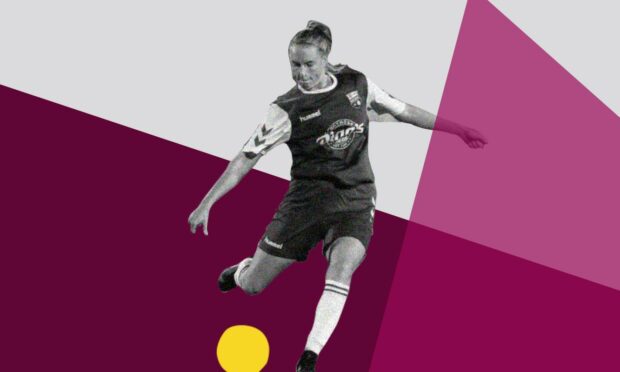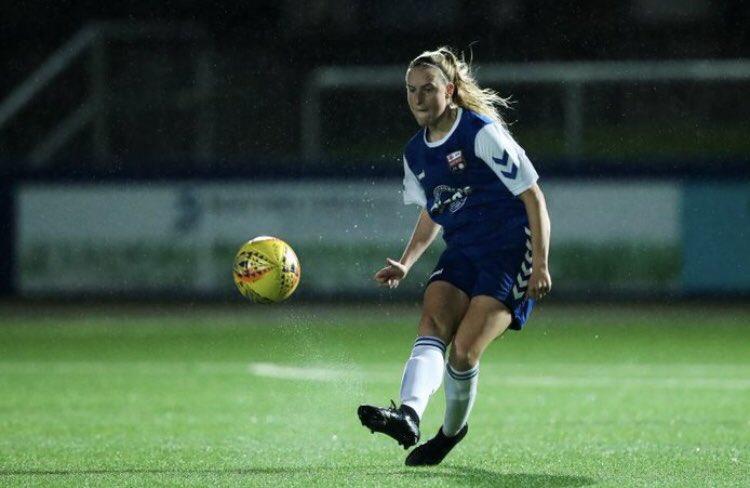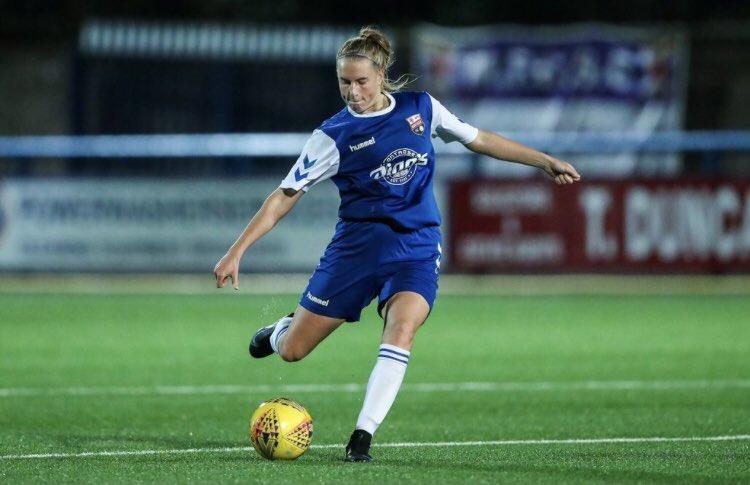She was the only girl in the boys’ team.
Georgia Carter had to ignore the homophobic taunts and accusation of being ‘masculine’ just because she played football.
Now, the 21-year-old from Aberdeen who now lives in Dundee, is on a crusade to get more girls and women involved in the beautiful game.
‘I was the only girl that played football’
Defender Georgia started playing when she was just seven. She said: “At school age, I had to play with the boys and you were always last to be picked as you were the girl.
“Because you played football you were seen as more masculine or it was a case of ‘you must be a lesbian if you play football’.
“I was the only girl that played football. If you did something good on the pitch and played well, it was a surprise and the other team got criticised for being beaten by a girl.”

Centre back Georgia now plays for Montrose Ladies FC. She is also the girls and women development officer for Dundee United Community Trust.
She revealed her experiences after our investigation discovered women and girls suffered misogyny including sexualised comments, homophobia and even death threats.
She said: “When I was younger, I had to get changed in toilets and things like that as there were no facilities for females.
“I just had to ignore it and get on with it. When I was playing in a boy’s team, my mum would hear negative comments about me from people watching.
“It is enough to put people off coming into the sport. I got through that and just hope that things will continue to change.”
‘Abuse needs to stop’
She added: “I do notice the online abuse on more high-profile players’ social media posts. Hopefully with the growth of the women’s game it will be taken more seriously.
“It is a really important issue and it has to be taken seriously for the game to grow. People who post abuse maybe do not really realise the severity of it and just think it’s cool or funny.
“It needs to stop. It comes from people who are not that educated about the women’s game. When Scotland were beaten by Spain 8-0, there was a lot of negative comments.
“At Montrose there has been real investment in the women’s team. In some of the most recent games, people going to the men’s game have been coming to the women’s matches to cheer us on.
“The attendance is definitely growing.”
Anyone who witnesses sexist abuse, harassment or discrimination, can report it in a number of ways.
You can report discrimination within Scottish grassroots football to the Scottish Football Association.
Or search for Scottish FA Grassroots in Google Play or App store.
Also, the Her Game Too anti-sexism campaign has an anonymous online form.
If you feel the form of discrimination you witnessed either on the pitch or online could be a hate crime, you may also report it to Police Scotland via 101.
Read more from this series
- Survey reveals scale of sexist abuse facing those who love the game
- Rachel Corsie: You can think I’m the worst player in the world but don’t tag me in posts or say nasty remarks
- Amy Strath: We are playing our own game – it is women’s football. We deserve to be treated with respect
- Sophie Goodwin: I was too scared to call out abuse in women’s football before. But that’s what I’m doing now
- Zoe Ogilvie: Let’s celebrate the differences and opportunities women’s football offers
- ‘Great strides made but we must remain vigilant to combat sexism in football’
- Elsie Cook: We have to speak out against sexists. We can’t let them win
- Donna Paterson: We were left to get changed in the stands… You’d never see that in the men’s game
Credits
Words and interviews by Sophie Goodwin and Stephen Stewart
Story design by Cheryl Livingstone
Graphics by Carly Gilchrist
Data visualisations by Emma Morrice
Video by Drew Farrell, Kim Cessford and Gregor Aiken


